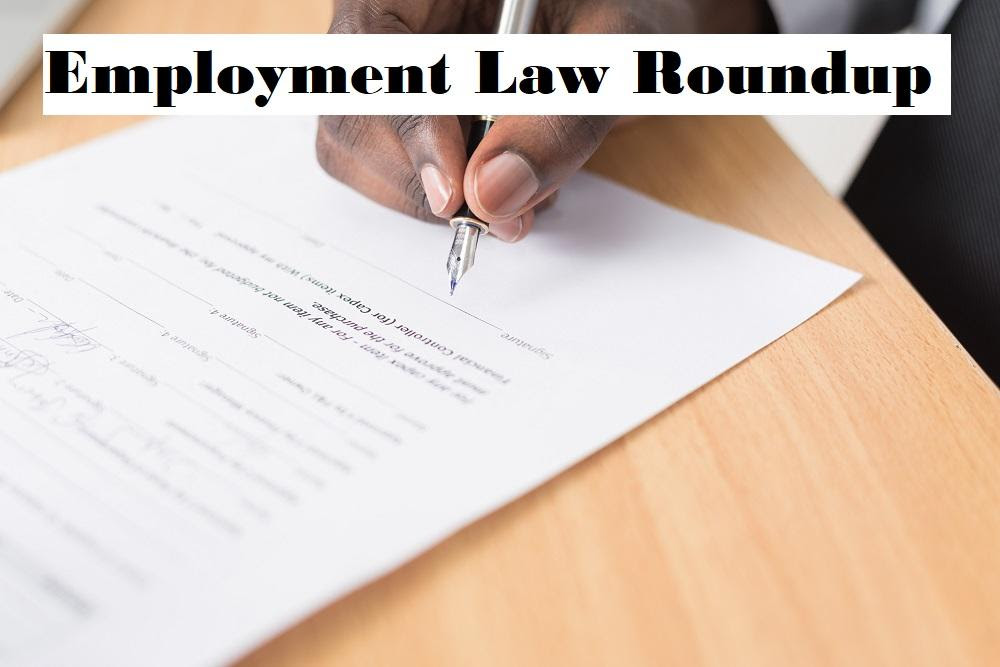Oregon Employment Laws that Took Effect on January 1
The following is a brief summary of some of the new employment-related laws passed by the Oregon legislature.
• The Creating a Respectful and Open World for Natural Hair Act (CROWN Act) prohibits employers from discriminating based on physical characteristics historically associated with race. This includes hair texture and protective hairstyles.
• The Oregon Family Medical Leave Act (OFLA) now provides leave eligibility to employees who are re-employed after a separation or who have returned to work after a temporary work cessation within 180 days. In addition, an employee is eligible for leave during public health emergencies when the employer has employed that employee for at least 30 days immediately before the leave begins, so long as the worker has averaged at least 25 hours of work per week during the previous 30 days.
• With respect to predictive scheduling, the law provides that employees may identify childcare needs as a reason for having scheduling limitations or requiring changes to their schedule.
• Employees have one year (rather than 90 days) to file workplace-safety violation related administrative complaints with the Oregon Bureau of Labor and Industries (BOLI).
• The noncompetition law has once again been amended to provide additional protection to employees. Now, generally speaking, employees subject to a noncompetition agreement must earn a salary and commissions of more than $100,533. This amount will be adjusted annually for inflation. Further, noncompetition agreements are valid to a maximum of 12 months after termination of employment.
• Employers are prohibited from requiring an employee (or a prospective employee) to have a driver’s license, unless driving is an essential job duty or is related to a legitimate business purpose.
COVID-19 Related Workplace Retaliation
Last November, the Equal Employment Opportunity Commission (EEOC) released guidance for employers on preventing COVID-19 related workplace retaliation.
This guidance makes clear that employees and job applicants are protected from retaliation for speaking about or exercising their rights related to workplace discrimination. These “protected activities” include:
• Filing a charge, complaint, or lawsuit
• Reporting alleged equal employment opportunity law violations to a supervisor or answering questions during an employer investigation of the alleged harassment
• Resisting harassment, intervening to protect coworkers from harassment, or refusing to follow orders that would result in discrimination
• Requesting accommodation of a disability or of a religious belief, practice, or observance
Examples are an employee requesting an exemption from a vaccine, testing or face covering requirement due to religion, a disability, or a medical condition; an employee alleging that a supervisor unlawfully disclosed confidential medical information such as a COVID-19 diagnosis; reporting comments made to an Asian American employee accusing Asian people of spreading COVID-19; or alleging harassment based on an employee’s decision to wear a mask for a disability.
Retaliation means any employer action in response to protected activities that might deter a reasonable person from engaging in such activities. Examples include denial of a promotion, not hiring an applicant, termination of employment, a negative evaluation, and transfer to a less desirable work location.
Colorado Criminalizes Certain Noncompetition Agreements
A new Colorado law makes it a class A misdemeanor for an employer to implement void restrictive covenants, including noncompetition agreements that do not follow applicable law.
Noncompetition agreements are void in Colorado unless they relate to contracts for: (a) the purchase and sale of a business or a business’ assets; (b) the protection of trade secrets as defined by law; (c) the recovery of the expense of educating and training an employee who has been with the employer for less than two years; and (d) executive and management personnel.
Whether you are an employee or an employer, please feel free to contact us if you have any questions about these new laws or any other aspect of employment law.
For more information about employment law, see Employment Law (in Plain English)®, co-authored by members of this law firm. The book is available through Skyhorse Publishing, Amazon, Barnes & Noble, Powell’s Books, and Bookshop (an online bookstore that allows you to support your favorite independently owned bookstore).
Photo by Cytonn Photography on Unsplash






